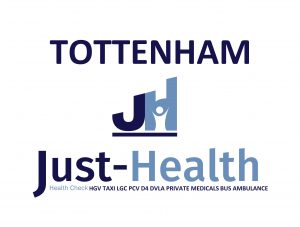Travel Vaccines
Visit the websites listed below to see whether immunisations are necessary for your next trip, if you are considering travelling outside of the country and would need some direction on the vaccines that you are required to have.
Our staff of highly trained medical experts, based at various locations around the country, is standing by to help you with all of your vaccine needs.
Vaccines
Diphtheria is a highly contagious bacterial infection that affects the nose, throat, and sometimes the skin.
Diphtheria is highly contagious. It’s spread by coughs and sneezes, or through close contact with somebody who is infected. You can also get it by sharing items, such as cutlery, clothing, or bedding.
However, diphtheria is very rare in England because babies and children are routinely vaccinated against it. However, diptheria is found in many areas including Asia, Middle East, eastern Europe, Caribbean.
Symptoms- These usually start two to five days after becoming infected
These include:
A thick grey-white coating at the back of the throat
A high temperature (fever) of 38C (100.4F) or above
Sore throat
To help prevent serious complications, such as breathing difficulties or heart problems, diptheria needs to be treated quickly in hospital.
Vaccination
All children should be vaccinated against diphtheria as part of the routine childhood vaccination schedule.
Adults should consider having a booster vaccine when travelling to parts of the world where diphtheria is widespread.
People who have been in close contact with someone who has had diptheria should also consider the vaccination.
Cholera
Cholera is an infection that can cause severe diarrhoea.
You can catch cholera by drinking unclean water or food, or eating food that has been handled by an infected person. Cholera is common in many third world countries that don’t have a modern sewage system or clean water supply.
Symptoms
Symptoms of cholera include: sudden onset of profuse, watery diarrhoea with associated nausea and vomiting. If untreated, cholera can rapidly lead to serious dehydration, dangerous salt imbalances and shock. Over 50 percent of the most severely affected patients die within a few hours. With prompt, effective treatment, mortality is less than one percent. Cholera may be mild or occur without symptoms in healthy individuals.
Prevention
You can protect yourself against cholera by following good hygiene guidelines. Its also recommended to drink bottled water only and to only eat uncooked food that has been washed with bottled or boiled water and prepared yourself.
The vaccine is given as two doses (one to six weeks apart) and can provide protection for up to two years. Both doses need to have been taken at least seven days before travelling.
The vaccine is recommended if :
You are a humanitarian or aid worker going to an area where a cholera outbreak is likely
You are travelling to an area without a clean water supply or a sewage system and you’ll be visiting remote places with none or limited medical care facilities.
Yellow Fever
Yellow fever is a serious viral infection transmitted by mosquitoes. It cannot be transmitted through close contact with someone who has it.
Yellow fever (YF) virus symptoms include:
A high temperature (38C or above)
Nausea and/or vomiting
Muscle pain and backache
Although most people make a full recovery after three or four days, over half of those who develop more serious symptoms such as bleeding from the mouth, nose or eyes, vomiting blood or blood in poo end up dying.
YF is found in most of sub-Saharan Africa, most of South America, parts of Central America, Caribbean.
Prevention
Those visiting YF risk areas should practice meticulous mosquito bite avoidance.
Yellow fever vaccine
You should be vaccinated at least ten day prior to your journey
YF vaccine is recommended for those who are travelling to:
An area where yellow fever is found
A country that requires you to prove you have been vaccinated against YF with a certificate. We will provide you with an International Certificate of Vaccination or Prophylaxis (ICVP) as we are a registered YF Vaccination Centre.
The vaccine provides lifelong protection for most people although booster doses are recommended in certain cases.
Hepatitis A
Hepatitis A is an infection of the liver, spread in the faeces of an infected person.
It is not usually serious but it can occasionally last for many months and can be life threatening if it causes the liver to stop working properly.
Hepatitis A is widespread in poor countries that may have relatively poor sanitary conditions and hygiene practices. These areas include: the Indian subcontinent, Sub- Saharan and North Africa, parts of the Far East, South and Central America, and the Middle East.
People at increased risk of Hepatitis A, include:
those who are staying with or visiting the local population in areas of poor sanitation
frequent and/or long-stay travellers to areas where sanitation and food hygiene are likely to be poor
those with existing medical conditions such as liver disease or heamophilia
men who have sex with other men
people who inject illegal drugs
those going to areas of hepatitis A outbreaks who have limited access to safe water and medical care
Symptoms
Symptoms develop on average, around four weeks after becoming infected, although not everybody develops any symptoms. These can include:
Joint and muscle pain
Temperature, feeling tired and unwell
A raised itchy rash
Pain in upper right part of the abdomen (this could become swollen and tender later on)
Dark urine/Pale poo
Prevention
As the most common mode of infection in travellers is consumption of contaminated food or water. The risk of acquiring hepatitis A can be reduced by ensuring good personal hygiene and following advice on the prevention of food and water-borne diseases.
Hepatitis A vaccine
There are several hepatitis A vaccines, some are given as combination vaccines with hepatitis B/typhoid fever. The vaccination should ideally be given 14 – 21 days before travel with booster doses available for long-term protection.
More information is available on the NHS Fit for Travel Website
Hepatitis B
Hepatitis B is a viral infection of the liver spread by direct contact with the blood or body fluids of an infected person.
It occurs in various parts of the world and is widespread in places such as sub-Saharan Africa, east and southeast Asia, and the Pacific Islands.
Certain behaviours or activities can put travellers at higher risk of hepatitis B, particularly when these occur in areas where hepatitis B is more common.
These behaviours and activities include:
unprotected sex
adopting or fostering children from high-risk areas
exposure to blood or blood products through occupation, such as healthcare work
exposure to contaminated needles through injecting drugs or having a sexual partner who injects drugs
long stay travel
Symptoms
In the majority of cases of hepatitis B symptoms do not occur. Symptoms more commonly occur in adults than children and may include: jaundice (yellowing of the skin and eyes), loss of appetite, fever and abdominal pain. Persistent hepatitis B infection develops in 80 to 90 percent of those infected in the first year of life and in only five percent of those infected in adult years. Persistent infection may lead to liver failure or liver cancer.
Prevention
All travellers should avoid contact with blood and bodily fluids by:
Avoiding unprotected sexual intercourse.
Avoid drinking alcohol – this can increase the risk of developing serious liver problems
not sharing needles or other injection equipment.
not sharing shaving equipment or toothbrushes with other people
Hepatitis B vaccine
Several well-tolerated inactivated hepatitis B vaccines, including combined hepatitis A/B products, are available and vaccination is recommended for all travellers considered at risk. The initial hepatitis B vaccination schedule involves 3 injections completed over differing time scales depending on how quickly they are required.
Full protection involves having three injections of the hepatitis B vaccine at the recommended intervals. The vaccine is very safe and side effects are rare as it is an inactivated vaccine.
Public Health England advises that for travellers who have completed a hepatitis B vaccine course, a single booster dose of vaccine at five years is not required, unless they are considered at continuing risk of infection. A blood test to check immunity (hepatitis B surface antibody levels) is only recommended for people with kidney failure or those at risk of occupational exposure particularly healthcare and laboratory workers.
Japanese encephalitis
Japanese encephalitis (JE) is a viral infection that is spread through mosquitoes.
JE is common in rural areas in South East Asia, the Pacific Islands and the Far East. The virus is found in pig and birds. It is passed to mosquitoes when they bite an infected animal. JE cannot be transmitted from person to person.
Most human infections with Japanese encephalitis virus result in either no symptoms or short-lived flu like symptoms. However, of those who develop more severe symptoms such as seizures, a stiff neck, confusion, uncontrollable tremor, up to a third will die. Half of those who survive are left with permanent brain damage.
Prevention
The best way to prevent JE is vaccination. The risk is greater if you plan on visiting rural areas or go hiking or camping. Other measures include
covering up with long sleeved tops, trousers and socks
applying insect repellent to the skin
when sleeping outside – use a mosquito net impregnated with insecticide
Japanese encephalitis vaccine
The current UK JE vaccine is given as an injection in two doses. The 2nd dose is given 28 days after the 1st dose. In the accelerated dose people between 18-64yrs may be given the 2nd dose after 7 days. Both doses must be completed at least seven days before travel to the area.
A licensed JE vaccine; IXIARO® is available and is recommended for those intending to stay for long periods in rural regions where JE occurs during the main transmission season or whose planned activities increase their risk. The vaccination is recommended from the age of 2 months onwards.
Malaria
Malaria is a serious and potentially fatal disease, transmitted by the bite of an infected mosquito.
Malaria is caused by a type of parasite known as Plasmodium. Malaria is found in more than 100 countries of the world, mainly throughout tropical regions of the world including in parts of Africa, Asia, Central and South America, the Caribbean, the Middle East and Oceania.
All travellers visiting areas where malaria occurs are at risk of acquiring the disease, particularly migrants to the UK who were born in malaria risk areas and return to visit friends and relatives in their country of birth. Any immunity travellers may have acquired in their country of origin wanes rapidly on migration to a country with no risk of malaria; their UK-born children will have no protection from the disease. Certain travellers are at increased risk of severe disease such as: pregnant women, those with an absent or poorly functioning spleen, children and older travellers.
Symptoms
The symptoms of malaria can develop as quickly as seven days after you are bitten by a mosquito, although sometimes it can take up to a year for symptoms to develop. Initial symptoms are flu-like and typically include: fever, headache, vomiting, muscle aches, and diarrhoea. The most serious type is Plasmodium falciparum. If not treated promptly, this can lead to breathing problems and organ failure leading to death.
Prevention
Prevention of malaria involves several steps. These steps can be remembered as the A, B, C, D of malaria prevention:
Awareness of the risk
Bite prevention (particularly at night time)
Chemoprophylaxis (use of appropriate malaria prevention tablets)
Diagnosis (prompt diagnosis and treatment)
Anti-malarials are usually recommended if you are travelling to an area where there is a risk of malaria. The type of anti-malarial depends on
Destination
age
Medical history including allergies
Current medication
Our specialist pharmacist will provide country-specific information on malaria prevention medication.
All travellers should be aware of the signs and symptoms of malaria and should be advised to seek immediate medical attention if these occur either whilst abroad or up to a year after their return.
Meningococcal Disease
Meningococcal disease (MD) is an infection caused by the bacteria Neisseria meningitidis. This bacteria is one of the leading causes of bacterial meningitis and septicaemia. MD can be spread through coughing, kissing, sneezing, and sharing utensils etc. Therefore household members of an infected person are at an increased risk. The highest incidence occurs in young children, with a second disease peak in adolescents and young children.
MD is most common in the ‘meningitis belt’ of sub-Saharan Africa, which extends across the dry savannah regions from Senegal in the west, to Ethiopia in the east. In this region major epidemics occur every five to twelve years.
Invasive meningococcal disease usually presents as meningitis or septicaemia. Symptoms of meningitis include: sudden onset of fever, intense headache, neck stiffness, nausea and vomiting. Symptoms of septicaemia include: fever, chills, confusion and a rash. Both conditions may progress rapidly and are serious diseases with high risk of complications.
Prevention
Individuals should seek advice about their risk of meningitis prior to travel. Meningococcal disease in travellers is primarily a risk for those visiting areas prone to outbreaks or an area where a known outbreak is occurring. Following basic hygiene etiquette when coughing and sneezing could help. Avoiding overcrowded areas such as busy markets and local transport may reduce risk but may not be practical.
Meningococcal disease vaccines
Vaccines for travellers are available to protect against multiple strains of MD. In the UK two such vaccines are Menveo and Nimenirix (quadrivalent vaccines). If individuals are travelling to an area where MD is prevalent or due to their itinerary or activities they may be at increased risk of infection then they should consider being vaccinated. Those travelling for the Hajj or Umrah are currently required to show proof of vaccination with a quadrivalent vaccine (protecting against the A,C,W and Y serogroups) in order to obtain a visa.
Poliomyelitis
Poliomyelitis (Polio) is a viral illness that occurs in the gastrointestinal tract. It is transmitted mainly through the faecal-oral route in areas where sanitation and personal hygiene are poor. Polio is only carried by humans, and it has the potential to be eradicated if everyone in the world is immunised.
The countries with the highest risk of polio are considered to be Pakistan, Afghanistan, and Nigeria, although other countries are still at risk when immunisation coverage drops and when there is an outbreak.
Polio spreads via the bloodstream to the central nervous system. Most individuals (about 95 percent) who acquire polio do not develop symptoms. When they do occur symptoms may range from a mild illness with fever, to meningitis or even paralysis, which may be life long in some of those affected.
Prevention
An effective vaccination against polio is available. In addition to vaccination travellers should ensure good personal hygiene and follow advice on prevention of food and water-borne.
Polio vaccine
Children are normally immunised with the polio vaccine as part of the national schedule.
Travellers who have had a vaccine in childhood should generally receive a booster dose every ten years if they are travelling to an area of high risk.
Sometimes when there is an outbreak or for trips to an endemic country, there may be additional vaccine and possible certificate requirements.
Rabies
Rabies is a viral disease that causes inflammation of the brain in humans and other mammals.
It is transmitted to humans usually by a bite or scratch from an infected animal, usually a dog. The virus attacks the central nervous system causing, progressive damage to the brain and spinal cord. If you are treated before symptoms appear, it is very effective. However, once symptoms appear then rabies is almost always fatal.
Although rabies cases are rare in travellers, animal bites and scratches are common. It is important that travellers visiting areas where rabies occurs are aware of the risk and know what to do if they are bitten or scratched. In rare cases you may get infected if animal saliva gets into your mouth or eyes or if an animal licks an open wound.
Prevention
Contact with animals during travel should be avoided.
Avoid touching any dead animals
Make sure your child knows they need to inform you if they have been bitten, scratched or licked by an animal
Not to attempt to pick up an unusually tame animal or one that appears to be unwell
Not to attract stray animals by offering food or by being careless with litter
Public Health England has produced a leaflet with more information about rabies risks for travellers
Symptoms of rabies usually begin from three to twelve weeks after infection, although they can begin earlier or later. These include high temperature, headache, generally feeling unwell. These can be followed by confusion, hallucinations, frothing at the mouth, muscle spasms leading to paralysis. Once symptoms appear this will almost always lead to death.
Rabies vaccine
The rabies vaccine is given as an injection. You need three doses over 28 days so you need to plan adequately and leave enough time before you travel. Booster doses are recommended if you have been vaccinated before and you’re travelling to a high risk area again.
You should be vaccinated against the rabies virus if you’re travelling to an area where rabies is common and:
You are planning a long stay (more than a month)
There is inadequate access to healthcare facilities
Your activities could put you at higher risk of exposure to animals with rabies:
– laboratory workers routinely handling rabies virus
– bat handlers who regularly handle bats
– those who regularly handle imported animals
– animal workers who regularly travel to rabies risk areas
– health workers in rabies risk areas who may have direct contact with rabies infected patients
Tetanus
Tetanus is a serious disease caused by a toxin produced by the bacteria Clostridium tetani. Tetanus affects the nervous system. It can affect your ability to breathe and can be life threatening. Tetanus bacteria are commonly found in soil and in the manure of animals. Bacteria can enter your body through open wounds. Once inside they release the toxin which affects nerves causing the symptoms of muscle spasms and stiffness. Tetanus bacteria can enter your body through the following ways:
Cuts and scrapes
Burns
Animal bites
Body piercings, tattoos and injections
Eye injuries
Tetanus occurs worldwide, but is more common in resource-poor countries where vaccination coverage is low.
Prevention
It is important to be aware of the risk of accidents while travelling. Travellers should thoroughly clean all wounds and seek appropriate medical attention.
Tetanus vaccines
Tetanus vaccination is given as part of the NHS childhood vaccination programme. This should provide long lasting protection against tetanus. If you’ve not had the full vaccination course it is possible to fully vaccinate older children or adults who were not vaccinated when younger.
Tetanus is common throughout the world so it is best to be vaccinated before travelling abroad.
When travelling to a country where medical facilities may be limited, a booster dose of a tetanus-containing vaccine is recommended if the last dose was more than ten years ago even if five doses of vaccine have been given previously.
Typhoid
Typhoid is a bacterial infection acquired due to a specific type of Salmonella. It can affect the organs and without treatment can be fatal.
Typhoid fever is highly contagious. It is spread via the poo or urine of an infected person. If someone else eats food and drinks water that has been contaminated, then they also become infected with typhoid fever.
Typhoid is common in areas of the world with poor sanitation or limited clean water access. Children are most at risk as their immune system is still developing.
The majority of travel related infections in the UK occur in those visiting friends and relatives in countries of the Indian subcontinent (Bangladesh, India and Pakistan). There is also risk when travelling to Africa, South America, and Asia.
Symptoms
Symptoms of typhoid fever are: a high temperature, headache, aches and pains, constipation or diarrhoea and a rash. If typhoid isn’t treated then up to 1 in 5 people with the condition will die.
Prevention
The risk of acquiring typhoid or paratyphoid can be reduced by ensuring good personal hygiene and following advice on the prevention of food and water-borne diseases.
Typhoid vaccination
Vaccination is recommended for travellers whose planned activities put them at higher risk of typhoid infection in areas where sanitation and food hygiene are likely to be poor. Vaccinations currently available only protect against typhoid and not paratyphoid infection. Both oral and injectable vaccines are available. Some vaccinations are combined with hepatitis A.
Public Health England’s Immunisation against infectious disease states: children between the ages of 12 months and two years should be immunised if the risk of typhoid fever is considered high. Immunisation is not recommended for children under one year of age. When children are too young to benefit fully from typhoid vaccination, scrupulous attention to personal, food and water hygiene measures should be exercised by the caregiver.
Length of protection
Following a single dose of an injectable or a complete course of oral typhoid vaccine, reinforcing immunisation should be offered at three-year intervals for those at continued risk. Booster vaccination of oral typhoid consists of 3 further capsules.

FAQs
The number of vaccines required for travel in the UK varies depending on the destination country and the individual traveler’s health status. The National Health Service (NHS) provides recommendations for travel vaccines based on the health risks present in different parts of the world.
For example, some commonly recommended vaccines for travel include measles, mumps, and rubella (MMR), diphtheria, tetanus, and polio (DTP), and yellow fever. The specific vaccines required or recommended will depend on factors such as the traveler’s age, medical history, and the length and type of travel.
It’s recommended to check the NHS website or consult with a GP or travel clinic for the most up-to-date and personalized information on the vaccines required for travel to a specific destination. The healthcare professional will be able to assess your individual needs and provide advice on the vaccines required and any additional precautions to take.
The cost of travel vaccines in the UK can vary, with some being provided free of charge by the National Health Service (NHS), while others may need to be purchased privately. The specific cost of a travel vaccine will depend on factors such as the type of vaccine, the number of doses required, and the location of the clinic providing the vaccine.
For example, some commonly recommended travel vaccines, such as diphtheria, tetanus, and polio (DTP) and measles, mumps, and rubella (MMR), are available for free under the NHS. However, other vaccines, such as yellow fever or rabies, may need to be purchased privately and can cost anywhere from £50 to £150 or more per vaccine, depending on the clinic and the location.
It’s recommended to check directly with a “Just Health“ team for up-to-date and accurate information on the cost of specific travel vaccines. They will be able to provide a more personalized estimate based on your individual needs and circumstances.
The number of times you need to be vaccinated before travelling outside of the United Kingdom is determined by a number of variables, including your personal health condition, the kind of vaccine, and the country you are travelling to.
Some vaccines, such as the diphtheria, tetanus, and polio (DTP) and the measles, mumps, and rubella (MMR) vaccines, may only need to be administered once in one’s lifetime, while others may require multiple doses or boosters in order to maintain their efficacy. Travel vaccines are available in a variety of formulations. For instance, the yellow fever vaccine only has to be given once, but it may be necessary to have a booster shot once every ten years in order to maintain protection.
It is highly encouraged to seek the advice of a Just Health clinic in order to get the most up-to-date and precise information on the number of travel vaccines that are necessary for a particular location. The qualified medical expert will be able to evaluate your unique requirements and provide you recommendations for the optimal interval between trip vaccines.
Travel vaccines are not always necessary in the UK, but they can be recommended or required for travel to certain parts of the world where there are increased health risks. Travel vaccines protect against illnesses and diseases that may be more common in other parts of the world and can prevent the spread of disease to others. They are an important aspect of preparing for international travel, especially if you are traveling to areas with a high risk of infectious diseases, such as yellow fever or typhoid.
If you need particular information about the travel vaccinations necessary or recommended for your upcoming trip, it’s best to talk to Just Health clinic. The doctor of Just Health will evaluate your condition and provide suggestions depending on the health hazards of your destination.






































































